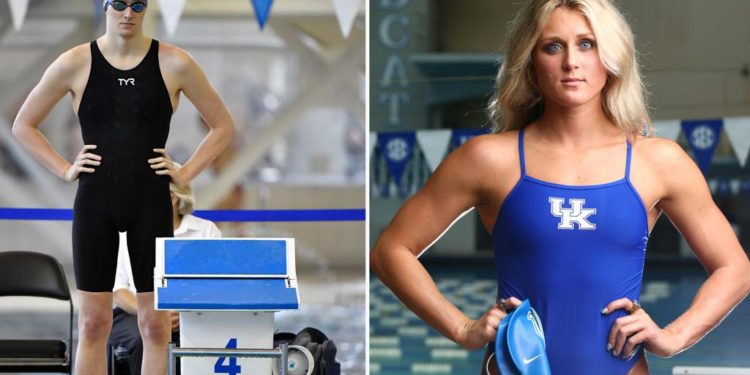THE TELEGRAPH
It was hardly a call for revolution. In a homemade internet video, Mohamed al-Bokari had simply said: “Everyone has rights and should be able to practise them freely, including gay people.”
Before long, the 29-year-old was languishing in a Saudi prison over the remark, charged with “violating public order and morals” and suspected of being gay, which is illegal in Saudi Arabia and can carry a punishment of up to 500 lashes.
Mr al-Bokari, a Yemeni resident of Saudi Arabia, was allegedly tortured during his imprisonment in 2020 as jailers forced him to confess to being gay. One report said he was subjected to an anal examination to determine his sexuality. Eventually, he was sentenced to a 10-month imprisonment and deported back to Yemen after an international outcry.
Fury at Henderson
It is cases like Mr al-Bokari’s that have driven fury at Jordan Henderson, the former Liverpool footballer who signed with a Saudi club despite presenting himself as a long-time ally of the LGBT community.
Gay Saudis, who either live in secret at home or in exile abroad, do not hold back when asked about the star player’s alleged hypocrisy.
“It feels like a huge stab in the back,” said Abdulrahman Alkhiary, an exiled, openly gay Saudi activist in an exchange on Instagram with The Telegraph.
Henderson caused astonishment this summer after joining Al-Ettifaq FC, a Saudi premier league club, as part of a reported £700,000 per week deal.
The former Liverpool captain used to wear a rainbow armband during matches. But fears that Henderson’s decision would backfire appeared to be confirmed when the club turned a colour photograph of the player black and white, concealing his armband.
‘Accusations of sportswashing’
The row has renewed accusations against Saudi Arabia of “sportswashing” and comes as Western allies seek to rehabilitate the tarnished reputation of Crown Prince Mohammed bin Salman, with a state visit to Britain due to take place this autumn.
Until recently, the Crown Prince was a pariah to Western leaders, including President Joe Biden, for allegedly ordering the murder of journalist Jamal Khashoggi in 2018 at the Kingdom’s Istanbul consulate. The Crown Prince, widely known by his initials MBS, vehemently denies that accusation and insists the killing was carried out by rogue Saudi agents.
Since that global scandal unfolded, the Crown Prince has introduced a string of internal reforms to modernise Saudi society, such as allowing women to drive, and has overseen lucrative deals on sport, broadcasting and tourism.
Crown Prince Mohammed is also quickly becoming a major power player in Middle Eastern diplomacy and beyond, making him a potential key ally for Western governments. This Saturday sees the start of a Ukraine peace conference hosted by Riadh.
The Saudi ruler’s global comeback is particularly distressing for members of the country’s gay community, who can be jailed or punished with floggings of up to 500 lashes over their sexuality.
Punishments for homosexuality
Saudi punishments for homosexuality are based on Sharia [Islamic law], with the most notorious example being the 2010 sentence of 500 lashes for a young Saudi who had gay sex and filmed himself dressed as a woman.
In more recent years there have been grim reports of Saudi families hiring kidnappers to bring transgender children back home for “detransition therapy”.
In one such case, the Independent reported that Saudi woman Eden Knight, 23, took her own life after she was coerced into returning from the US to Saudi Arabia and forced to detransition from female to male.
Saudi Arabia has also embarked on a spree of executions in recent months and has mounted an unprecedented crackdown on citizens who criticise the Kingdom on social media.
The Telegraph approached Saudi authorities and Henderson’s club for comment but did not immediately receive a response.
Gareth Southgate, the England manager, said he has spoken to Henderson and that the player is “fully aware” of the criticism. He added that Henderson should “explain” his decision when the time came.
Traumatic experiences
A small number of gay Saudis live outside the Kingdom so they can live openly with those they love, including Mr Alkhiary, who is a social media influencer, journalist, rights campaigner and self-styled “gay lion”.
Asked about his own experiences of being a gay man in Saudi Arabia, he referred to a 2016 post on LinkedIn that recounted his traumatic experience coming out to his parents.
After revealing his sexuality, he said, his parents tried to force him to return to Saudi Arabia for “therapy”, threatened him with eternal hellfire and even tried to track him down in the US after he fled the family home.
“I [was] so afraid of my parents that I didn’t pack any of my belongings from home,” he said of the experience.
The Saudi tourism board has stressed that “everyone is welcome to visit Saudi Arabia”, including LGBT people, provided that they “follow and respect our culture”.
Parvez Sharma, a gay Muslim film-maker, travelled from New York to Mecca for the Hajj pilgrimage in 2011. In his film, A Sinner in Mecca (2015), he recounts talking online to Mohammed, a gay Saudi man in Medina.
Witnessed a beheading
Mohamed had just returned from the market to do some shopping for his mother. On the trip, he witnessed the beheading of a man rumoured to be gay.
The film shows videotape footage of the scene, finishing just before the executioner’s axe strikes the man’s neck.
Victory may come on the pitch for Henderson. But if he fails to address brutality such as this his four-year stint in Saudi Arabia will be seen, in many quarters, as a lingering defeat.


